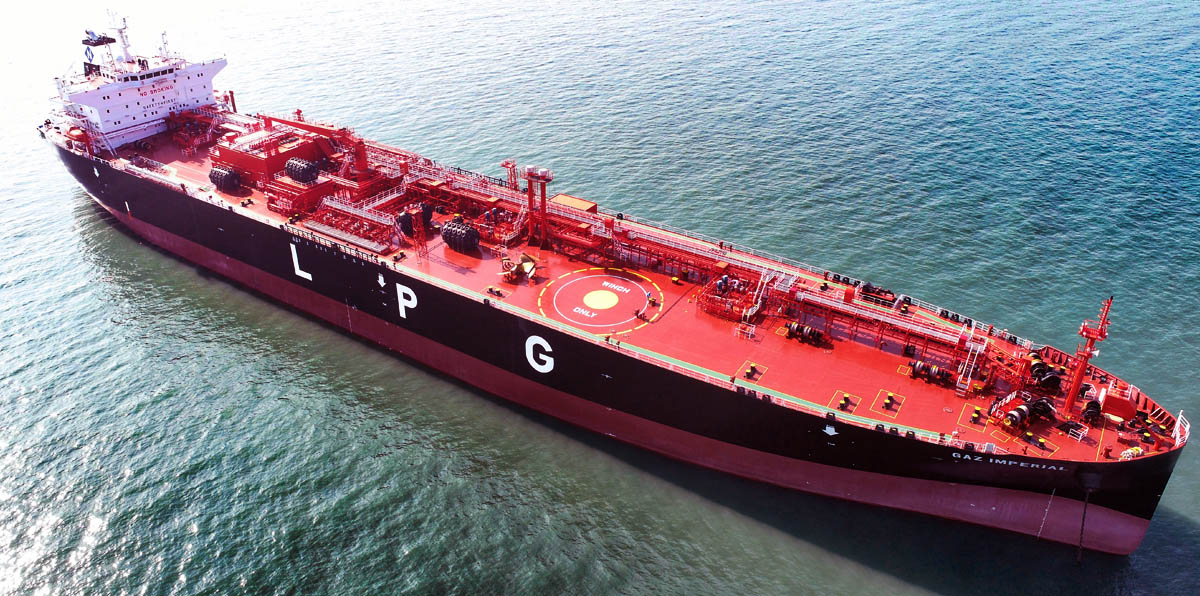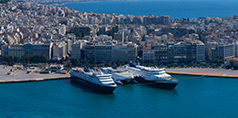When it comes to the Liquefied Petroleum Gas (LPG) market, the Greek company Naftomar is a true expert. Whilst the Athens-based firm started out in Beirut, Lebanon, as a trading house for the distribution of petroleum products in the Mediterranean region in 1972, it soon discovered the huge potential of LPG. It opened a separate business unit to offer ship owning and operating services as early as 1976. Today, Naftomar has established itself as a renowned provider for trading and shipping LPG.
When it comes to floating storage, it is fair to say that Naftomar is one of the pioneers. It handled one of the very first Ship-To-Ship (STS) operations back in the early 1980s. Today, the company has carried out more than 4,000 successful transactions with more than 10 million tonnes of products transshipped. It has accumulated a deep knowledge of this demanding activity and built an impeccable safety record. STS is a very specialised operation, as one vessel needs to connect to another vessel in open sea in order to transfer cargo.
“Our focus has always remained the same and over the past decades, our business has continued to grow. We are proud to have become a key player in the LPG market,” George Paul Perantzakis, Fleet Director at Naftomar explaind. He added, “It is our goal to support our clients with our expertise and offer tailor-made solutions to complex activities.” For instance, the specialist offers its expertise to resolve product shortages, address the problems associated with longer voyages and gain access to new sources of supply. In addition, floating storage has proved to be a valuable tool to tackle market fluctuations.
Sharing the same values
Naftomar’s relationship with BSM Greece goes back more than 25 years. “It is fair to say that we only work with partners who we consider to be the best – this is crucial to maintain our high safety standard. We select our suppliers in a very careful manner and place utmost importance to sharing the same values and high standards. BSM provides a very capable and well-trained crew and we have always been very satisfied with their level of knowledge and experience. BSM enables us to perform our operations safely and timely in the most difficult conditions.”
Today, Naftomar’s fleet consists of 24 vessels of various types and sizes. For instance, the company’s semi-refrigerated ships offer great commercial flexibility, while the benefits of Naftomar’s pressurised vessels are their convenient size, which means they are very easy to operate in small terminals.
With the Gaz Imperial, the company received its latest addition to the fleet in January last year. It takes pride in the fact that it does not buy ships “off the rack”, but designs them in close partnership with the respective ship yard. “We define the vessels’ specs based on our expertise and what’s needed for our industry,” George explains. Whilst the company currently does not have any newbuildings on order, the Fleet Manager emphasises “we’re always open to take advantage of opportunities.”
Presently, BSM Greece manages a fleet of four semi-refrigerated vessels with a capacity of 9,000 cbm each, and a crew from Eastern Europe and the Philippines. The ships were built in 2011 and have been under BSM Greece’s crew management ever since then. “We are very happy with the performance of these vessels, even though they have been trading in continuously changing and demanding environments over the past years,” George concludes.



